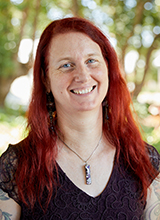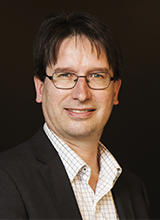Lithgow Regional Futures - Workshopping transition
Date & Time: 25th October, 1:30pm - 3:30pm. Maldhan Ngurr Ngurra, Lithgow Transformation Hub ,154 Mort St, Lithgow NSW
A little more about the session
How do we plan to become climate ready? How do communities transition away from Extractive economies that dig us deeper into climatic uncertainty? This session is intended to be a participatory engagement with efforts to broaden the conversation about the future of Lithgow and other regional communities facing new forms of climate uncertainty.
It builds on and brings together previous workshops on Lithgow’s bioregion, food futures, housing needs and aspirations, and cultural industries, as well as last year’s New Economy symposium. If you were interested in or attended any of those, we’d love you to take part in shaping those into a vision and plan for a thriving region.
Biographies
 Louise Crabtree-Hayes Louise Crabtree-Hayes | Louise's research focuses on the social, ecological and economic sustainability of community-driven housing developments in Australia; on the uptake of housing innovation in practice and policy; on complex adaptive systems theory in urban contexts; and, on the interfaces between sustainability, property rights, institutional design and democracy. Her work is underpinning the emergence of forms of permanently affordable and community-led housing in Australia, such as housing cooperatives and community land trusts, on which she is Australia's leading expert. |
 Neil Perry Neil Perry | Neil is an Associate Professor in Corporate Social Responsibility and Sustainability. He specialises in progressive economics approaches to environmental economics and policy and in ecological economics, an interdisciplinary field emphasising the interdependence of economic, social and ecological values. His research on the economics of biodiversity conservation, policy to combat climate change, and heterodox environmental economics is published in Ecological Economics, the Journal of Economic Perspectives, the Journal of Australian Political Economy, and Wildlife Research. Neil’s applied research involves the use of cost benefit analysis and other economic analysis tools to promote sustainability and environmental and social values. He has completed research grants with local Councils, social housing providers and environmental organisations, and has three current research grants with colleagues from the Institute for Culture and Society and the Hawkesbury Institute for the Environment: an ARC Linkage grant on articulating value in cooperative housing; a TfNSW/Metro grant on the wider economic benefits of transport projects; and a DPE grant to develop the Cumberland Plain Conservation Plan Research Implementation Strategy. Neil’s applied work on transitioning economies and at the Maldhan Ngurr Ngurra Lithgow Transformation Hub has been recognised with an appointment to the NSW Governments Regional Expert Panel for the Central West. |
 Michelle Maloney Michelle Maloney | Dr Michelle Maloney is the Co-founder and National Convenor of the Australian Earth Laws Alliance (AELA), and a Director of Future Dreaming and the New Economy Network Australia (NENA). She is recognised internationally as a leading authority on Earth laws, Earth jurisprudence and Rights of Nature and her books, journal publications, podcasts and speaking events can be accessed on her profile page: www.earthlaws.org.au/michelle Michelle began her career as an environmental lawyer, and then broadened her work to include multi-disciplinary approaches to creating Earth-centred governance and systems change. She now designs and manages social change initiatives that focus on creating bioregional stewardship and governance, reimagining law and economics, empowering communities, bridging different cultural approaches to ecological care, Earth-centred ethics and the arts. As a Director of Future Dreaming, Michelle works with First Nations elders and communities, and is currently writing a book with Indigenous elder Mary Graham, called "Future Law: How the Relationist Ethos can be a Foundation for Australian Society". Michelle holds a Bachelor of Arts (Political Science and History) and Laws (Honours) from the Australian National University and a PhD in Law from Griffith University. Michelle's PhD analysed how collective action (including law and regulation) can help reduce unsustainable consumption. She is Adjunct Senior Fellow, Law Futures Centre, Griffith University; on the Steering Group for the International Ecological Law and Governance Association (ELGA) and is on the Advisory Group for the Global Alliance for the Rights of Nature (GARN). |
 Cameron Tonkinwise Cameron Tonkinwise | Professor Cameron Tonkinwise teaches Service Design and researches Sustainable Design at the University of Technology Sydney (UTS). His expertise has reshaped traditional thinking around how designers should be educated, and he has established Design Studies programs at the Parsons The New School for Design (New York), Carnegie Mellon University (Pittsburgh) and UTS. Cameron has been a leading voice in the emerging practice of Transition Design, enabling human-scale designers to facilitate systems-level change toward more equitably sustainable societies. His collection of essays on the philosophy of design, How Designing Happens, will be published by Bloomsbury. |




